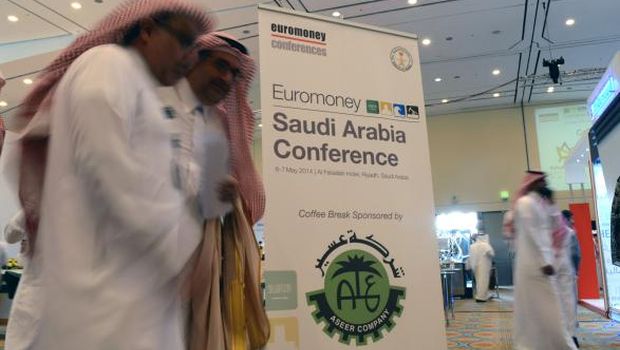Just recently Fitch upgraded the sovereign rating of Saudi Arabia to AA from AA-, denoting a stable outlook for the Kingdom. Fitch’s upgrade of Saudi Arabia’s sovereign rating makes it rank seventh within the G20 members, after the United States, Germany, Canada, Australia, Britain, France, and ahead of even Japan and China. Despite political upheaval across the Middle East and North Africa, gradual economic recovery in the Eurozone, the slower pace of growth in China, and continued weakness in other major economies, Saudi Arabia’s economy and investments continues to expand at a healthy pace, with real GDP growth averaging 6% over the last decade. A 3% level of inflation, a pegged currency that brings stability and predictability, a fiscal surplus in its tenth recurrent year, a level of indebtedness that is among the lowest in the world, and foreign assets close to the size of its economy all define Saudi Arabia’s successful macroeconomic story. As a reflection of the economic opportunities and friendlier investment environment, Saudi Arabia received about 40% of the foreign investments flowing into the Arab region and the volume of its foreign direct investment (FDI) has reached about $199 billion. Altering the investment has not been an easy process and hurdles still exit.

Driving out in the desert not far from Riyadh one quickly realizes of the vastness and ruggedness of the land in Saudi Arabia. Over the last few decades this land has been transformed and modernized. It’s easy to criticize the faults found today, but few remember that in the 1970s illiteracy was predominant, whereas today some 26 public universities exist. Diversification away from oil is an ongoing goal with no easy and quick solutions. Saudi Arabia’s efforts to modernize have been steadfast. Plans to introduce specialized commercial courts are materializing and are changing the way commercial ties are addressed. The regulatory framework is friendlier to business and the process of setting up a business has been streamlined in recent years. That in itself is a boon for investors. In its “Doing Business 2013” report, the World Bank ranked Saudi Arabia 22nd out of 185 economies in terms of ease of doing business, a marked improvement from 2005, when it ranked 67th. The same report placed Saudi Arabia the 3rd most favorable tax environment world-wide. Equally important, is Saudi Arabia’s strong performance is tax and regulation. Saudi Arabia provides businesses with an accommodating and streamlined tax regime, which has been a major attraction point in recent years. The Kingdom has no income tax, no property tax, no sales tax, and no value-added tax. The corporate tax is only 20%, with ability to carry losses forward indefinitely to offset future taxes. Full repatriation of capital, profit and dividends is allowed, subject to a 5% withholding tax. There is no minimum capital requirement for foreign investors in most sectors. According to the World Economic Forum, Saudi Arabia is one of the easiest countries in which to secure venture capital for innovative projects.
Ease of doing business and investment friendliness should not be confused with ensuring that tangible investments take place. In the recent past the experience of the Saudi Arabian General Investment Authority (SAGIA) indicated that misuse of licensing took place in areas such as workshops, restaurants and small contracting companies. Some companies that received provisional licenses were not in compliance with Saudi Arabia’s foreign investment law and therefore had their authorizations revoked. Some 1400 licenses have been revoked over the past year or so. In the past foreign entities viewed Saudi Arabia as a place to make quick money through contracts and exit. Gone are the days when little or no contribution is made back into the economy and society at large. While trade is good, what nations seek is long-term investment with clear multiplier benefits for the wider economy. Saudi Arabia is aiming to be a high value-added manufacturing powerhouse, varying from advanced petrochemicals and plastics to pharmaceuticals and auto parts. A case in point is Saudi Arabia’s abundant bauxite and cost efficient energy for smelting to produce aluminum. Alcoa has partnered with Ma’aden, the Saudi Arabian mining company, in a major venture that should stimulate local manufacture of high-quality aluminum projects. A level playing field for foreign investors, coupled with an established fast-track process for all, large and small, is an undeniable priority for SAGIA.
Improving the investment climate is a central pillar of Saudi Arabia’s broader program to diversify away from oil and provide employment for a country with 35% of its population below the age of 15. Being selective of foreign investments that provide clear economic benefits for the economy is a defining characteristic of Saudi Arabia’s new strategy. There is no turning back the clock as the country’s future is pegged on its ability to attract investments and push ahead with change. Saudi Arabia is a country on the rise, with its sights set on becoming one of the most important investment destinations world-wide.
John Sfakinakis is John Sfakianakis is the Chief Investment Strategist of MASIC, the Riyadh-based investment and asset management company.
Editor’s Note: This item originally appears on the Euromoney Conference website, and is used by permission of the author.









